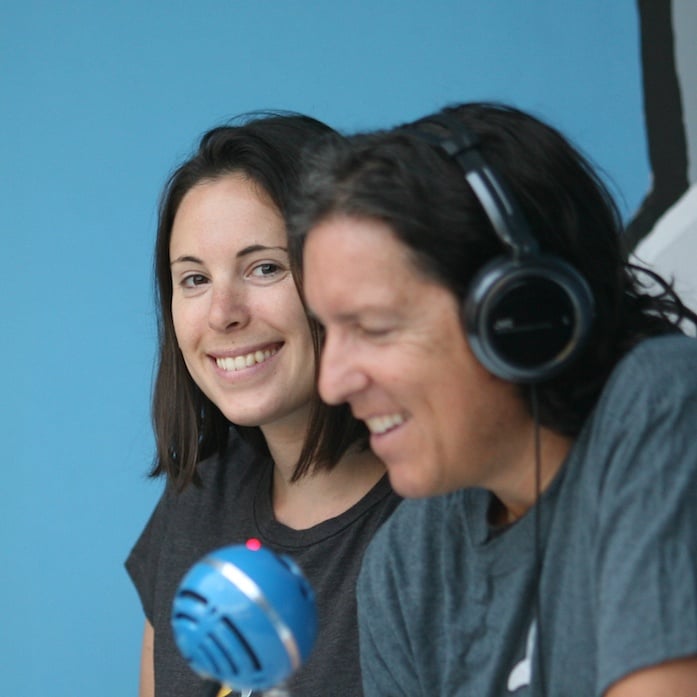 |
 |
|
Tom Krackeler Senior Vice President of Products |
Rachel English Director of Customer Success |
Today's episode features Tom Krackeler, Senior Vice President of Products at Zuora and Rachel English, Director of Customer Success at Zuora. Tom and Rachel joined us to discuss the future of Customer Success in the subscription economy.
Business of Customer Education Conference in Palo Alto
- ServiceRocket hosted a conference around "The Business of Customer Education" on 2/25 in Palo Alto, bringing together customer training leaders to share best practices, discuss lessons learned, and help pave a vision for the future of customer education. Recommended Reading: Recap of Business of Customer Education Event.
People are no longer buying goods - they're subscribing.
- Now more than ever, we're subscribing to everything: Software, cars, music. Zuora's mission is to be the tech that helps businesses succeed in the subscription economy.
- Help customers achieve great things with software and services and understanding those achievements is the help we need to give them to drive continual selling.
- Make it easier for customers to accomplish what they want. This may mean: Getting out of the way or diving in and helping.
- Figure out how customers can they be successful and get value from a relationship that goes on with your company for years and years.
What's changed in Customer Success over the past seven years?
- In the past, Customer Success used to be just account management with a new name - it wasn't managed that differently. Sometimes they had a renewal/upsell sales number.
- As Customer Success has developed, there was a period where it was a catchall. No one knew how to define it. It was where anything that needed to be gotten done for customers happened.
- Gradually Customer Success has become more defined and now is a direct driver of primary business outcomes any subscription business is trying to achieve.
Customer Success is a direct driver of primary business outcomes any subscription company is trying to achieve.
- Customer acquisition, convert trial users to paying customers, retention, expansion or growth, key to bottom lines as subscription companies.
- That's helped defined the ultimate calling of customer success function. It's night and day.
Attitudes around Customer Success have changed.
- What was considered customer service or support and was reactive (break/fix).
- Now, Customer success is a strategic function at companies and CS leader is sitting at the table in the executive meeting, board meeting, and is really driving a core part of this strategy of a company. That wasn't true with older business models that were about upfront sales and maintenance contracts.
- Once companies are maturing going into next fiscal year, they know, for example, that install base will produce 80% of revenue and new sales only 20%.
- Customer Success is now responsible for customers sticking around and making them successful is in a much more commanding role in driving company strategies and decisions.
Who owns the renewal contract negotiation? Customer Success or sales?
- The simpler and smaller a product line is, Tom recommends CS should do the renewal. Renewals may only have one variable like # of users, not a lot of complexity. At that point, bringing in account execs to do renewal is too much overhead.
- Moving to complex, multiple product line negotiations and you're outside what CS manager or leader sees as the mandate and skillset and in that case it makes sense for renewals to fall under sales.
- Customer Success should be seen as more unbiased. Any time you get into contract negotiations, paperwork, it helps keep the CS relationship pure if you have someone else in to do dollars and cents debates and contract things. It tends to correspond to size and complexity of deals but it's more about keeping that relationship pristine.
Should Voice of the Customer live under Marketing or Customer Success?
- Zuora just launched the VOC community owned by marketing. Recommended reading: Launching The Zuora Community
- Customer Success otherwise owns the function of VOC.
- VOC quotes, assets, and feedback are used by sales, product, marketing and Customer Success teams at Zuora.
Who is helping customers and convincing them they're receiving value.
- Companies that do a good job of describing to primary buyer in B2B how they and all colleagues use and get value from applications.
- SFDC has been doing this for over 10 years, asking, "how is your company taking advantage of all we have to offer?"
- Some other companies do it but it hasn't taken off as much as thought we would. Domo does a pretty good job.
- Reflect back how customers are using your software and what they're accomplishing.
- Companies have consultative delivery models that are giving guidance and advice and consulting around a functional area. It's not just how to use product but how to be effective in your job. That's a different approach and doesn't work for everything. We do a lot of that at Zuora and we do at some other companies at well. It's for larger, more enterprise customers and helps ensure ongoing value is clearly understood.
Is consultative model trying to be a Trusted Advisor?
- There's a reflective approach on how it did well.
- QBRs are one approach, and some ongoing fashions vs. waiting for 4x/year powerpoint.
- Salesforce sends monthly email saying how you're doing.
- Key is listening to customers and understanding what value customers are trying to get out of your services and that's criteria for both of those approaches to work well.
To What degree should companies foster self-service in their Customer Success programs in 2016
- Self-Service is always needed as an option no matter what.
- Self-service should be easy to find and great quality.
- Do a good job of making valuable content that helps customer achieve great results with software or service is essential for all kinds of customers and companies.
- Not every customer will use it, but you can make sure the content is of top-notch quality and also make sure it's easily accessible. That's actually tough to do. Finding it, searching it. Don't get little siloes for customers that's hard to navigate.
- The more you can show you have information available, even customers who prefer for 1:1's or phone with problems will gradually get used to the reliable place to go to get info in middle of the night.
- It should be an ongoing an initiative to have great content that customers can serve themselves.
Educate customers on different ways to get help they need.
- Every touch point with customers should help remind them how to get help.
- Pre-formed sign-ins support ticket signoff
- Customer Service teams with email signatures
- Constantly drive home the valuable resource for them. It ultimately makes customers happy and reduces load on support and customer success.
The real purpose of measuring Customer Success
- Ultimately there's a handful of metrics that are driving every business decision and board level discussion: cost for acquisition, recurring revenue, etc. Roll up into how it impacts those. Internal goals and metrics.
- Core belief is that if what you care and focus about is help customers get ongoing value from relationship with company, those metrics are a byproduct of it and a positive one.
- If you believe those come together, everyone can have the right motivation.
The focus should be on providing value to customers - if that's done right, everything will fall from that.
- But it's not just for the board we're measuring metrics in Customer Success. We ultimately need to tell customers, if we can't be here as sa business and function as a business we can't be here for you. It's a full circle.
Customer Success Radio is relaunching as Subscribed Podcast
- Customer Success Radio is becoming The Subscribed Podcast or Subscribed.
- This will broaden the topics and Rachel and Tom will host it - Customer Success Radio's next generation.
- You should check it out when it launches!
Between episodes, we can continue the conversation on Twitter with the hashtag #HelpingSells. So if you’d like to chat with Sarah and Bill, tweet us and use the Hashtag #HelpingSells.




